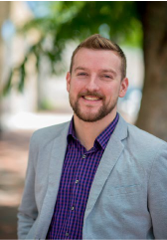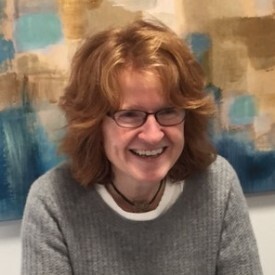
Rhythm and the Motor System: Parkinson Disease Gait Training
Recorded On: 10/15/2020
-
Register
- Non-member - $40
- PT Member - $30
Since a landmark study by Rossignol and Melville in 1979, there has been a surge of research demonstrating that the auditory and motor systems have a rich connectivity that promotes the synchronization or entrainment of the rhythmic signal and the motor response. This research has been translated into an intervention for gait training called Rhythmic Auditory Stimulation (RAS). There have been decades of clinical research demonstrating the effectiveness of RAS on specific diagnoses including Parkinson’s disease. Outcomes include increased symmetry of muscle activation, diminished timing variability, and improved velocity and stride length. Recent studies have shown that RAS can improve the gait of aging older adults, as well as reduce fall risk in Parkinson’s Disease. Recently, it was shown that motor training with rhythm leads to changes in the arcuate fasciculus. This presentation will discuss the neural foundation and practical applications of RAS in patients with Parkinson disease.
Learning Objectives:
1. Understand the neuroscience of rhythm and basis for rhythmic auditory stimulation
2. Review the mechanisms and treatments of rhythm deficits in Parkinson Disease
3. Provide ideas on implementing Rythmic Auditory Stimulation-based treatment in the hospital and clinic
Course Recorded October 2020

Brian Harris
MA, MT-BC, NMT/F
Brian Harris is the Co-Founder and CEO of MedRhythms; company focused on the intersection music, neuroscience and technology. Brian is a board-certified music therapist and one of 350 Neurologic Music Therapist Fellows in the world. Brian’s clinical work is focused at Spaulding Rehabilitation Hospital in Boston, USA where he created and implemented their first inpatient full time Neurologic Music Therapy program, specializing in Traumatic Brain Injury, Stroke, and neurologic disease and built this program to be the most comprehensive NMT program in the country. Brian is also the Chair of the Arts & Neuroscience group at the American Congress of Rehabilitation Medicine and sits on the Advisory Council of the Academy of Neurologic Music Therapy. He has been an invited speaker at venues throughout the world including: the American Academy of Neurosurgeons, Harvard Medical School, the American Congress of Rehabilitation Medicine, Stanford University, Berklee College of Music, The Neurology Foundation of India, and Google. Brian has a published piece in Frontiers of Psychology, where he co-authored an article entitled, “Sensory Stimulation and Music Therapy Programs for Treating Disorders of Consciousness” and is listed as an inventor on MedRhythms patented Digital Therapeutic platform. His work has also been featured in Forbes, CNBC, The Huffington Post, Pitchfork, Mashable, The Boston Herald, XConomy, MedTech Boston and on Chronicle Boston. Brian was recently named to MedTech Boston's 40 Under 40 Healthcare Innovators for 2017.

Abigail Spaulding
PT, DPT, NCS
Abigail Spaulding graduated from Duke University with a major in Biology and Biological Anthropology and from the University of Vermont with a Doctorate in Physical Therapy. She has worked at Spaulding Rehabilitation Hospital in Boston Massachusetts as a physical therapist since 2013 where she currently holds a full-time position on the Brain Injury Program. She became a Neurologic Clinical Specialist in 2016.

Terry Ellis
PT, PhD
Terry Ellis, PhD, PT is an Associate Professor and Chair of the Department of Physical Therapy & Athletic Training, College of Health & Rehabilitation Sciences, Boston University. Dr. Ellis is also the Director of the Center for Neurorehabilitation at Boston University and the Director of the American Parkinson Disease Association National Rehabilitation Resource Center housed at Boston University. Her research focuses on investigating the impact of exercise and rehabilitation on physical capacity and community mobility in individuals with neurological conditions, including Parkinson disease and stroke. She also has expertise in using mobile health technology to help persons with Parkinson disease to engage in lifelong exercise with the goal of improving overall mobility, community engagement and quality of life. Dr. Ellis has a Ph.D. in Behavioral Neurosciences from Boston University School of Medicine and is a licensed physical therapist with board certification in Neurologic Physical Therapy. She has published numerous articles and lectures internationally on topics related to rehabilitation, exercise and mobile health technologies in persons with Parkinson disease.

Michael Lewek
PT, PhD
Michael Lewek, PT, PhD is an Associate Professor in the Division of Physical Therapy, Department of Allied Health Sciences at the University of North Carolina at Chapel Hill. He is also the Associate Director of the Closed Loop Engineering for Advanced Rehabilitation (CLEAR) core in the joint Department of Biomedical Engineering at UNC-Chapel Hill and NC State University. Dr. Lewek’s research interest involves understanding and restoring gait mobility for individuals with neurologic injury, primarily individuals post-stroke and people with Parkinson disease. He uses tools involving biomechanics, energetics, and motor learning to improve rehabilitation strategies.

